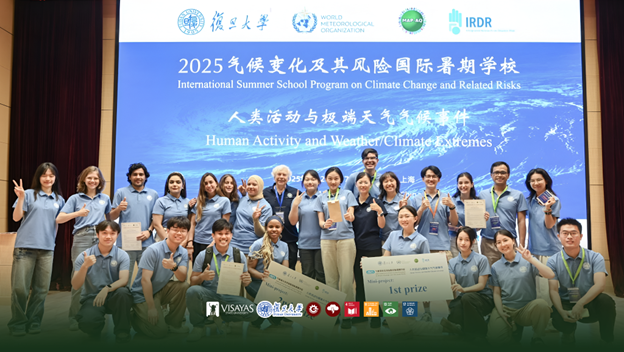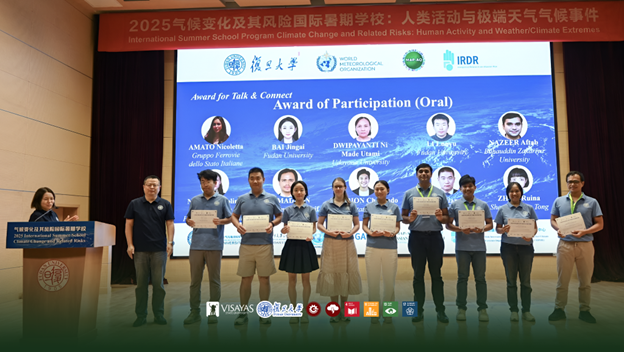#GoingGlobal: VSU Meteorology department head joins prestigious global climate summer school in China
Mr. Torrion is the only Filipino participant in the program, which marked a milestone for both the university and the country in global climate discourse.
The three-week event ran from June 29 to July 18 and brought together early-career professionals and scholars from across the world to tackle one of the most urgent concerns on intensifying the link between human activity and extreme climate events.
The 2025 summer school focused on the theme “Human Activity and Weather/Climate Extremes” and featured lectures and discussions led by top atmospheric scientists. Topics covered how land-use changes, fossil fuel consumption, and urbanization contribute to climate disruption, including heatwaves, flooding, droughts, and cyclones.

Photo courtesy of the Department of Atmospheric and Oceanic Sciences, Fudan University
The participation of Mr. Torrion allowed him to build networks with researchers, faculty, and other professionals across different continents. These connections, he said, could open up research exchanges, joint initiatives, and future climate resilience programs involving VSU and its partner institutions abroad.
Mr. Torrion’s engagement in the Fudan summer program aligns with VSU’s focus on climate education and disaster risk work, areas where the university continues to build its academic strength.
VSU President Dr. Prose Ivy G. Yepes has repeatedly emphasized the need for the university to step up in areas of science that are directly tied to public safety and future-readiness, especially in light of growing climate threats.
Through the Department of Meteorology and the university’s Climate Change Research and Development Center, VSU is expanding its curriculum and research focus on climate systems, extreme weather modeling, and localized disaster response.
For a region like Eastern Visayas, which is no stranger to typhoons and climate-related disasters, having a presence in global fora helps bring local perspectives to international discussions. It also positions VSU to access cutting-edge scientific knowledge and translate it into localized, actionable tools for disaster risk education and early warning systems.

Photo courtesy of the Department of Atmospheric and Oceanic Sciences, Fudan University
Mr. Torrion took to social media and expressed his gratitude to Fudan University for hosting the program and to VSU for supporting his participation.
“This experience made me feel more equipped and more connected. I’m bringing back ideas, new learning, and hopefully opportunities that we can develop here at home,” he said.
His involvement also gives visibility to VSU’s Meteorology program, one of the few undergraduate offerings of its kind in the country.
This article is aligned with Sustainable Development Goal (SDGs) 4: Quality Education; SDG 11: Sustainable Cities and Communities; SDG 13: Climate Action, and; SDG 17: Partnerships for the Goals.

